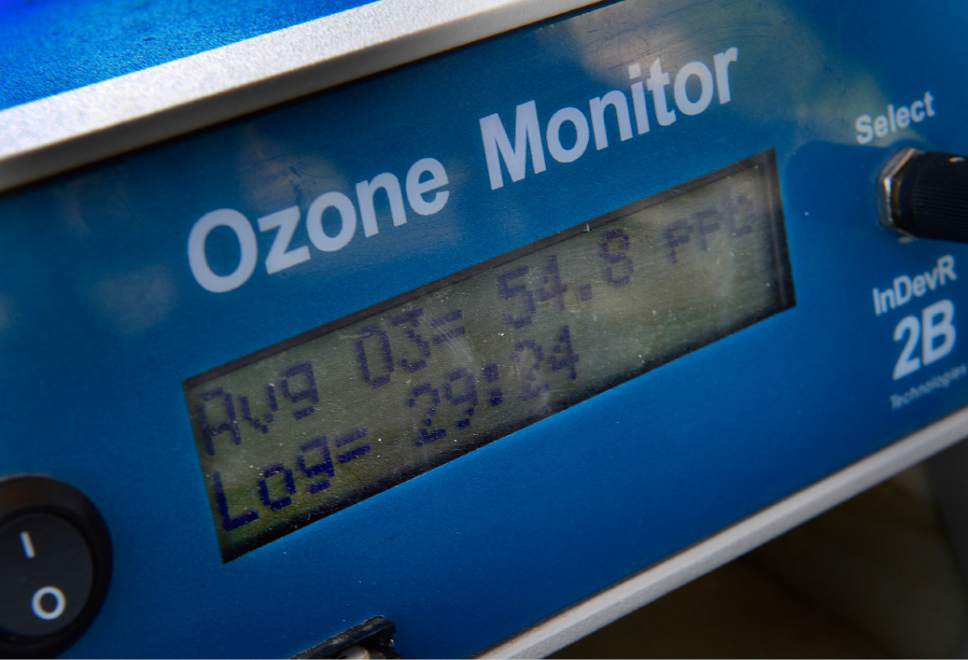This is an archived article that was published on sltrib.com in 2017, and information in the article may be outdated. It is provided only for personal research purposes and may not be reprinted.
If the data about air quality in the various cities and states were merely a matter of civic bragging rights, then it would make perfect sense for any state's elected representatives to protest when places that have a much heavier lift to comply with national rules are held to the same standard as areas where the problem is smaller.
But the level of ozone and other pollutants found in our air is not a game. And Sen. Orrin Hatch is not doing Utahns the favor he may think he is by working the refs.
It is highly likely that some regions of Utah, along and to the west of the Wasatch Front and in the Uintah Basin, will not meet the Environmental Protection Agency's standards for the levels of lung-harming ozone in the air we breathe.
If those federal targets are missed — which even state officials say they expect to happen — Utah will be required by federal law to put forward a plan on how to bring down the levels of ozone and other pollutants. Such steps could include tighter regulations, not only on fat-target industrial emissions but also on household and automotive pollution. In other words, steps that could bother everyone.
Hatch, reflexively, calls such rules "job killing" and protests, factually, that the ozone problem is tougher in these parts than in many other places. That's because of high levels of naturally occurring ozone — not the fault of cars or power plants or oil wells — as well as ozone that blows in from elsewhere and the tendency of the Utah atmosphere to trap air, and the pollutants it carries, in valley inversions not found in the flatlands of America.
But the fact that lowering levels of ozone and other pollutants, most notably the particulates known as PM2.5, is harder here doesn't make it less important. It makes it more important. Downright crucial, in fact.
Hatch and Missouri Democrat Sen. Claire McCaskill have introduced legislation that would give places such as Utah more time — up to 10 years more — to come up with and implement plans to lower ozone levels in areas where meeting standards is inarguably more difficult. Which is exactly the opposite of what we should be doing.
The point of air quality regulations is not to post good scores. It is to improve health and reduce the likelihood of early death. There are ways to do this, ways that not only improve the air but provide opportunities for inventors and entrepreneurs to come up with tricks and methods to meet the standards, putting the lie to the Hatch knee-jerk claim that anti-pollution steps are also anti-growth.
But only if that's the goal we set ourselves. Neither Hatch nor anyone else will help us by getting in the way.



